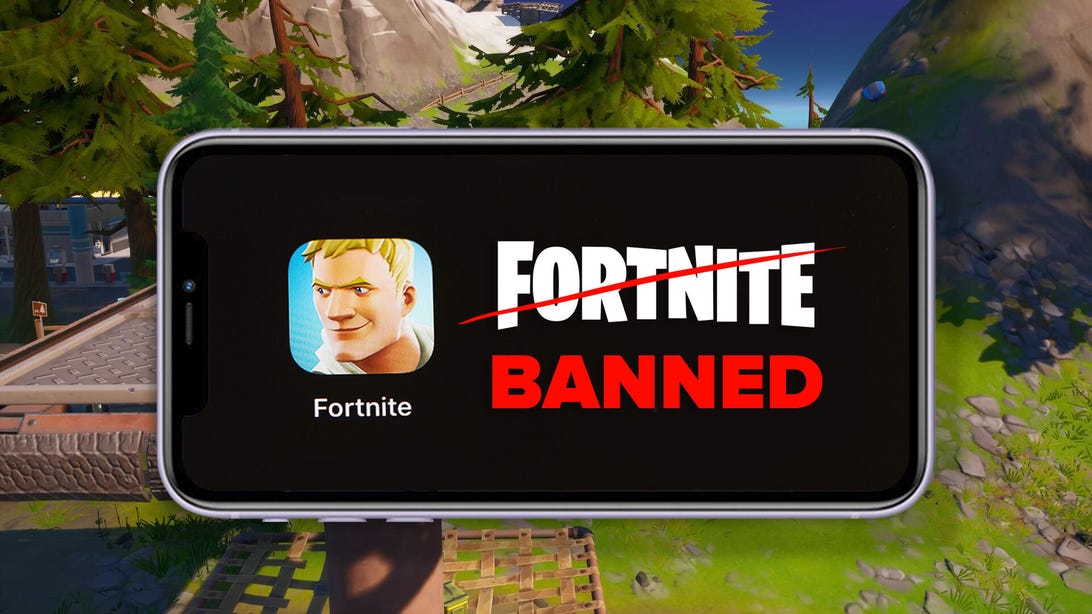Apple says Epic’s Fortnite lawsuit is a marketing stunt to revive ‘flagging interest’ in the game

[ad_1]
Apple and Epic have been dueling in a California court since August.
Angela Lang/CNET
Fortnite is one of the most popular games ever made and soon will be one of the most litigated.
Apple on Thursday submitted its description of its souring relations with Fortnite developer Epic Games to the US District Court in California, where the two companies will square off in a trial starting next month. In its filing, the tech giant argues that after making more than $700 million in the two years since publishing Fortnite on the iPhone’s App Store, Epic hatched a plan to make even more — and at Apple’s expense.
In its description of events, Apple outlined a media strategy called Project Liberty that Epic allegedly planned with its lawyers and public relations firm for months as an effort to draw more attention to Fortnite last year.
Last summer, Epic intentionally broke Apple’s App Store policies that insist all digital products like Fortnite’s victory poses, dance moves and new looks for characters be purchased through Apple’s payment processing service. Apple then removed Fortnite from its App Store for violating the rules. Epic responded by filing a lawsuit in August and launching an ad campaign that went viral on social media.
“Epic just wants to free-ride on Apple’s innovation,” Apple said in its filing Thursday, arguing that Epic is using the lawsuit to “revive flagging interest in Fortnite.”
An Epic spokeswoman declined to comment on the filing but noted that Epic has argued for fewer restrictions on Apple’s App Store since at least 2017. And in a competing filing, Epic repeated its earlier arguments that Apple’s App Store rules stifle innovation and that its commissions lead to higher prices for consumers.
For many people, the filings are the latest twist in a corporate slap fight between a multibillion-dollar company and a trillion-dollar company over who makes more money when a gamer spends money. But for Apple, this represents an existential threat to the iOS software and tools it’s built up around its iPhone, one of the best-selling tech products ever.
Apple’s success has been driven in part by the App Store, a service Apple launched in 2008 offering developers a way to build special-purpose applications and games and then market them through Apple’s centralized service. Apple takes a commission of up to 30% on digital items bought through those apps, a business model the company says is designed to offset the costs of running its store. The tech giant only allows people to download iPhone apps from its App Store, and any developer who doesn’t agree to its terms is forced to create interactive websites instead.
Google has similar but less restrictive rules for its Play Store, requiring developers who publish apps on its service to pay commissions on the sale of digital goods. Google also allows users to “side load” apps from other app stores, effectively downloading competitor platforms onto their devices, something Apple doesn’t do. Still, the same day Epic broke Apple’s app store rules it did the same with Google and was similarly kicked out of Google’s Play Store. Epic is suing Google over Fortnite as well in a separate case.
In the 13 years since Apple’s App Store launched, it’s helped propel the iPhone to astronomical highs, with more than 1 billion handsets being actively used as of January. During last year’s holiday season, which occurred at the end of a year roiled by the global coronavirus pandemic and resulting economic catastrophe, the iPhone helped Apple notch financial records. Its iPhone sales alone hit $65.6 billion, up 17% from a year prior.
The lawsuit, Apple says, is Epic’s attempt to change the iPhone’s business model. The company previously published emails in which Epic CEO Tim Sweeney asked Apple to allow alternative payment systems and download services, which would effectively let him set up his own app store on the iPhone. If a court forces such a change, industry watchers say it could fundamentally alter Apple’s business, disrupting not just its finances but also the security and reliability the company’s built around its tight control.
“Apple is among the most innovative, competitive, dynamic, and creative companies in the United States, and millions of people benefit from its products and services,” Apple said in its filing. “Those products and services are the result of billions of dollars of investment, in addition to substantial time and thought, and represent Apple’s intellectual property.”

CNET
Dueling views
Until August 2020, Apple and Epic seemed to have a pretty good thing going. In 2018, Epic announced its popular game Fortnite would be made available for free to play on Apple’s iPhones and iPads. Over the next two years, the companies raked in more than $1 billion in sales of optional looks and moves for characters. Then things unraveled when Epic attempted to circumvent Apple’s payment rules, leading to Fortnite being banned from the App Store and now an upcoming antitrust trial.

Fortnite’s become an internet phenomenon, in part because of its addictive gameplay and wacky characters.
Epic
Apple used swaths of its filing to argue against Epic’s accusation that the iPhone and App Store rules constitute a monopoly. In its filing, Apple repeated earlier statements that it represents only a fraction of phones used around the world and that many of the apps built for the iPhone can interact with apps on other platforms. Apple invoked an earlier Supreme Court ruling as well, writing that “antitrust laws ‘were enacted for the protection of competition, not competitors.'”
Epic argued in its filing that Apple’s arguments for its App Store, citing improved security and reliability, are a smokescreen for what amounts to a business decision. “Apple could easily implement security features to support open distribution on iOS without restricting app distribution to the App Store,” the game company said in its filing.
The company also argued that Apple’s ability to detect malicious apps was “limited,” based on a deposition from an Apple executive overseeing fraud detection engineering.
Epic also pointed to an internal case study Apple did of a fake “virus scanning” app. Apple’s app review team initially rejected the program, which didn’t actually scan for any viruses, twice before eventually allowing it onto the App Store. It then went on to charge unsuspecting customers $99 per week through Apple’s payment processing system, quickly making it one of the top-grossing apps at the time.
“Apple’s restrictions on app distribution degrade the experience of consumers and developers,” Epic added.
Apple didn’t comment on the App Store study but pointed to statements in its filing noting that about 40% of apps submitted are rejected by the automated and manual review process, which includes close to 500 Apple employees around the globe. It also added that outside security firms have said little of the malware on the internet is targeted at Apple’s software.
Project Liberty

Epic lampooned Apple with a PR campaign shortly after filing its lawsuit, including by creating this “Tart Tycoon” Fortnite character with an apple head.
Epic Games
Perhaps the biggest reveal of the two filings was Apple’s argument that Epic’s moves were carefully coordinated and designed to force Apple and Google to either change their app store rules or look like the bad guys.
Apple’s view into Project Liberty, as the plan was apparently called inside Epic, will likely include emails from executives as evidence, among other items. Apple also plans for CEO Tim Cook to testify at the trial, along with other high-ranking Apple executives — the audio of which will be livestreamed from the court to YouTube starting May 3.
“Epic is asking this Court to force alternative terms on Apple so that Epic can make more money,” Apple said in its filing. “But Epic’s request would harm other developers and consumers, in addition to imposing unprecedented obligations on Apple to open its proprietary systems and engineering to third parties.”
[ad_2]
Source link







